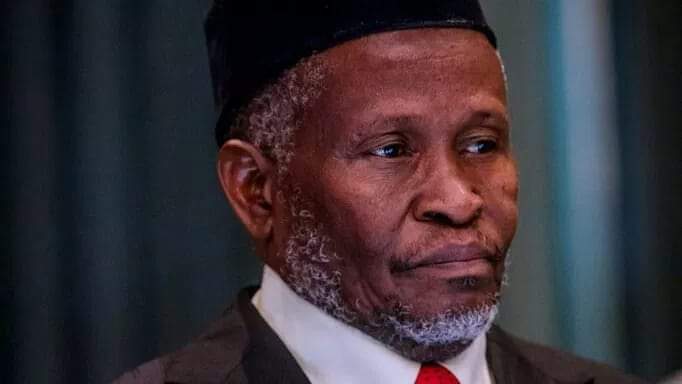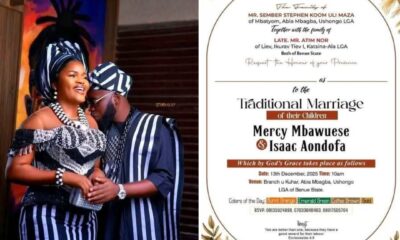Latest News
Why Senate confirmed Muhammad as Chief Justice of Nigeria

The Senate has confirmed Ibrahim Tanko Muhammad as the substantive Chief Justice of Nigeria.
President Muhammadu Buhari had on Thursday requested Mr Muhammad’s confirmation. His request was sequel to the recommendation of the National Judicial Council (NJC) to make Justice Muhammad the substantive Chief Justice of Nigeria.
Mr Muhammad was first appointed in January after the president controversially suspended Chief Justice Walter Onnoghen, who was accused of false declaration of asset.
Prior to the confirmation, the lawmakers went into an executive session which lasted for about half an hour after which Mr Muhammad was invited into the chamber.
The Senate voted to confirm him after he responded to questions from the lawmakers during his confirmation hearing on Wednesday.
Mr Muhammad fielded questions on various subjects, relating to the independence of the judiciary, corruption in the judiciary, establishment of special courts for corruption trial and respect for court rulings, among others.
During his hearing, he pledged to work with the executive and legislative arms of government to “take Nigerian judiciary to greater heights.”
He also said one of the reasons Nigerian judiciary is aback is lack of autonomy. He said the judiciary cannot appoint six more justices because there are no offices to accommodate them and that the salaries and allowances of lawyers and justices are laughable.
According to him, it is the duty of the legislatures to make these things right.
“My view is that only the legislature can put things right. Call a spade a spade.”
“I assure you that we are trying to work with the judiciary. We must ensure that the judiciary is properly remunerated. We will work with you,” said Senate President Ahmad Lawan, commending Mr Muhammad and thanking his colleagues who asked wide range of questions.
The Senate thereafter confirmed Mr Muhammad as the Chief Justice of Nigeria.
The new CJN was born on December 31, 1953. He hails from Doguwa, Giade Local Government of Bauchi State. He attended primary school at Giade Primary School from 1961 to 1968 and then Government Secondary School, Azare from 1969 to 1973.
He proceeded to Abdullahi Bayero University College, Kano for his IJMB from 1975 to 1976 and later went ahead to read Law at Ahmadu Bello University, Zaria from 1976 to 1980. He attended Nigerian Law School from 1980 to 1981.
Justice Muhammad was elevated to the position of Justice of the Court of Appeal from 1993 to 2006. He was appointed Justice of the Supreme Court of Nigeria in the year 2006 and was sworn in on the 8th of January 2007 until his appointment as the Acting CJN by the president in January.
Premium times

























